'Was the entire place properly sanitised by the police before he was brought out of the prison for this medical check-up?'
'Once he filed a plea in the Supreme Court stating there was a threat to his life, the UP police should have maintained stricter vigilance.'
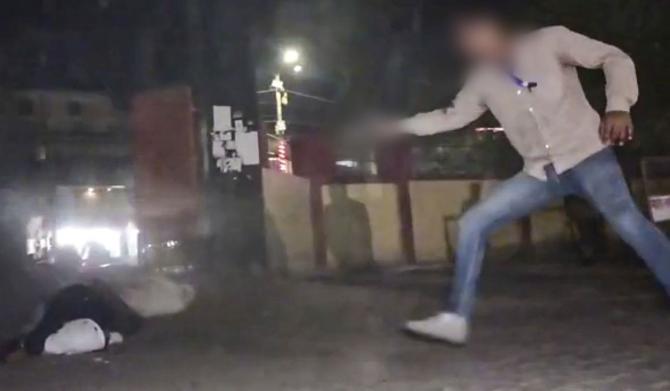
Senior Supreme Court advocate Sanjay Parikh, who had represented the People's Union for Civil Liberties, which had sought directions from the apex court for a CBI-monitored inquiry into alleged police encounters in Uttar Pradesh, tells Prasanna D Zore/Rediff.com, "I think this is a case where the Supreme Court should take suo moto cognisance and look into the way in which extrajudicial killings are taking place in Uttar Pradesh."
How do you look at the murders of Atiq Ahmed and his brother Ashraf when they were being escorted by policemen for medical examination?
The murder of Atiq and his brother, who were under police protection, raises very serious issues of lawlessness and complicity (of the police) because in the circumstances, when one is surrounded by policemen it is not possible (that three shooters go on a shooting spree and wantonly kill people without any counter attack by the police); he (Atiq) had moved an application before the Supreme Court that he apprehended some kind of encounter and the Supreme Court gave the direction that the state will take care of it.
These (murders of Atiq and Ashraf) look very suspicious and must be fairly investigated by an independent investigative agency to probe if there was a conspiracy (to kill Atiq Ahmed in the presence of police), if the state (government) was involved in this thing (murder) or not involved. These are very serious questions which ultimately bring the entire rule of law into question.
The idea that criminals need to be eliminated without following the Constitutional, judicial procedures seriously undermines the judicial process. This should not be acceptable in a democracy like India.
Could Atiq Ahmed have been saved from being murdered?
That is what needs to be investigated by an independent agency which should look into issues like: Was it so necessary to take them for medical examination at night and whether the media should have been allowed to speak to them or be present in the vicinity? Questions like: Did the media already know that the police were bringing Atiq Ahmed and his brother to this particular hospital?
Was the entire place properly sanitised by the police before he was brought out of the prison for this medical check-up?
Once he filed a plea in the Supreme Court stating there was a threat to his life, the UP police should have maintained stricter vigilance.
But all these facets of his murder will come to light only if an independent agency undertakes a fair probe.
I think this is a case where the Supreme Court should take suo moto cognisance and look into the way in which extrajudicial killings are taking place in Uttar Pradesh.
Unfortunately, many times sketchy petitions get filed in the Supreme Court and they immediately get rejected by the Supreme Court.
I would like to make one comment though: People ultimately want justice. These criminals indulge in killing people wantonly and the public at large, certainly fear such gangsters.
Now these acts of criminals, the political support they enjoy, as well murders of such criminals should be investigated properly and cases expedited in fast-track courts.
People think that this is not being done because of the delay in the dispensation of justice. We need to evolve a judicial process, an investigation mechanism that will expedite such criminal cases.
Such trials should be time-bound, there should be rock-solid protection of witnesses; whoever commits any crime should be swiftly brought to face the law and exemplary punishment should be given in such cases.
Is it normal practice for the police to take an accused for medical checkup at night?
Such questions will definitely be asked and the investigators will also look into these suspicions.
We also need to know why this medical checkup was so urgent; whether the accused complained of some suffering or ailment because they looked quite healthy when they were being taken for the medical examination.
There are many such doubts which only a thorough and fair investigation can bring to light.
It must also be investigated why the media were given so proximate access to these two while they were being taken to the hospital once they stepped out of the police jeep.
Usually, such easy access is not allowed to high-profile criminals, especially those who had apprehensions they could get eliminated while being moved from one place to another and for which they had filed a plea in the Supreme Court.
Could a case be filed against the UP government, police?
By the virtue of 2014 Supreme Court guidelines a case ought to be registered (against the policemen protecting the Ahmed brothers). It has to be registered against the police (who were escorting them to the hospital).
Whether the state (government) is involved (in Atiq Ahmed's murder) is a question of judicial inquiry.
In this situation, those (policemen) who were near Atiq and the contingent of police force, which was deputed for his protection, a case must be registered against them. But they (the UP police) will register a case only against the three shooters.
Atiq's relatives will have to file a police complaint against these cops so that the case can be investigated.
The Yogi Adityanath government immediately set up a judicial inquiry into the murder. Have such judicial inquiries been effective in the past? Do they help in bringing out the truth?
In Vishal Dubey's encounter case, a judicial inquiry was appointed; the Supreme Court looked into it and found that the encounter was genuine.
I do not understand this kind of clean chits being given because a process has to be followed and an investigation has to take place.
In defence, they can say that they did kill somebody in exercise of their right to defence.
How can any judicial committee give clean chit to them? Judicial inquiry is not the answer; the answer is a fair and thorough investigation by an independent agency.
An investigation involves filing a chargesheet and recording of evidence.

Did the UP police follow the Supreme Court's guidelines on extra-judicial killings during the encounter of Asad Ahmed and Ghulam?
All encounters as per the law come within the category of murder because there is nothing mentioned in the IPC (the Indian Penal Code about encounter killings), the CrPC (Criminal Procedure Code), or any other criminal law categorising encounters as a separate category and empowering the police or any other person to commit an encounter of anybody; there's nothing like a fake encounter or a genuine encounter.
When we say genuine encounter, it means there is a provision in the CrPC, Section 46 (which can be interpreted as such), which states that if some alleged criminal you want to apprehend is running and he's accused of the offense of killing somebody, and if such person is killed in self-defence (then it can be interpreted as a genuine encounter).
So, when somebody attacks you then you are entitled to defend yourself by exercising your right to self defence (and in the process the person may get killed).
But then these exceptions can be approved only during the defense (trial in a court). In any other case, suppose there is a murder committed by a private person (not a police encounter), then naturally, the law takes its own course and it is investigated. And then thereafter, evidence is recorded and the court pronounces the judgment.
When these encounters started increasing, the NHRC (National Human Rights Commission) came out with certain guidelines and finally directions were given in 2014 in a judgment by the Supreme Court.
Now suppose, in these cases if the police lodges an FIR saying that the other side (the criminals on the run) tried to attack and then (Section) 307 is invoked (against those killed in a police encounter): The offence of attempt to commit murder.
Now, in the counter attack by the police, most of the time the criminals they are allegedly chasing gets killed, which the police calls encounters. Most of the times such cases are closed by saying that there is an FIR and the FIR is closed.
So in order to come out of this problem, the (Supreme) Court said in 2014 that when a person is killed in extraordinary circumstances there has to be an investigation by an independent agency and all the provisions (of the IPC and CrPC) should be followed and then the law will take its own course.
Now in UP encounters, we find that these directions given by the Supreme Court may have been violated. Unfortunately, the judicial commissions (appointed to probe such police encounters) accept the final reports (submitted by investigators) and close the cases, which is against the rule of law.
I believe that in a case where the police is involved), it is required as per the law that such encounters are investigated as per 2014 guidelines of the Supreme Court.


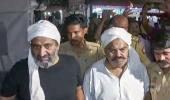

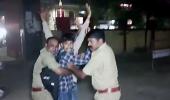




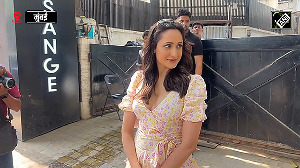
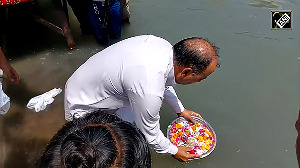
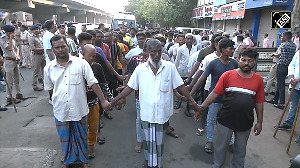
 © 2025
© 2025